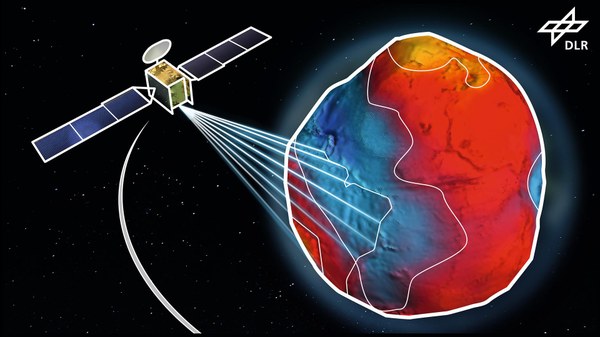BECCAL – developing technologies for quantum sensors in space



As part of the BECCAL (Bose Einstein Condensate and Cold Atom Laboratory) project, the German Aerospace Center (Deutsches Zentrum für Luft- und Raumfahrt; DLR) is investigating ultra-cold quantum gases – such as Bose-Einstein condensates (BEC) – both on Earth and in microgravity on the International Space Station (ISS).
In doing so, researchers are laying the foundations for fundamental research and the development of future quantum sensors. Essentially, the goal is to generate a Bose-Einstein condensate from an atomic cloud and observe it in microgravity, allowing external disruptive forces to be measured with incredible precision. The ISS provides a unique continuous free fall environment, allowing for extended microgravity conditions and observation times, the use of additional trap configurations for capturing and cooling atoms and enhanced experimental repeatability – essential for collecting consistent data and performing reliable statistical analyses.
Cold atoms for sensors and communication
Cold atoms exist close to absolute zero, at approximately minus 273 degrees Celsius, and their properties offer new insights into quantum physics. The BECCAL experiment, developed jointly by DLR and NASA, has been designed to study precisely this.
A prominent example of a quantum experiment is the investigation into free fall – the state of a body that moves freely only under the influence of gravity. In a vacuum, all objects – no matter their size or mass – fall at the same speed. The principle was famously demonstrated during the Apollo 15 mission to the Moon by American astronaut David Scott, who dropped a hammer and a feather at the same time, each landing on the lunar surface simultaneously. With a Bose-Einstein condensate, this principle can now be investigated with the utmost precision. To do this, two different types of atoms – in this case rubidium and potassium – are cooled and their acceleration in Earth's gravity is measured. In addition to this specific experiment, BECCAL is intended to enable a wide range of research on and with cold atoms.
Researchers worldwide will be able to experiment with Bose-Einstein condensates in microgravity. One aim is to use them in quantum sensors, with applications ranging from Earth observation, satellite navigation and quantum communication to testing fundamental theories such as general relativity.
BECCAL is based on QUANTUS and MAIUS, a series of DLR-funded projects for atomic optics experiments in microgravity – conducted in the drop tower in Bremen and on sounding rockets. The project also draws on the experience of the Cold Atom Laboratory (CAL), which was developed at NASA's Jet Propulsion Laboratory in California (Caltech) and installed on the ISS in 2018.
BECCAL is being developed at three DLR Institutes: the Institute for Quantum Technologies, the Institute for Satellite Geodesy and Inertial Sensing and the Institute for Software Technology. It is funded by the German Space Agency at DLR. Other project participants include the Humboldt University of Berlin, the Johannes Gutenberg University of Mainz, the Ferdinand Braun Institute for High Frequency Technology, Leibniz University Hannover, the University of Bremen, the University of Ulm and OHB System AG.
News
BECCAL project – experimental platform for cold atoms and Bose-Einstein condensates in space
- Duration: 1 January 2019 to 31 March 2028
- Leading institute: DLR Institute of Quantum Technologies
- Project type: Core funding
- Funding bodies: DLR Space Programme Directorate and German Space Agency at DLR



